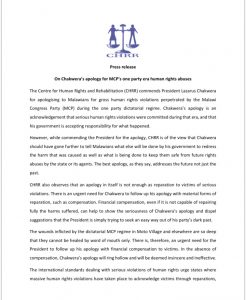
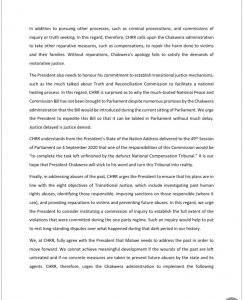
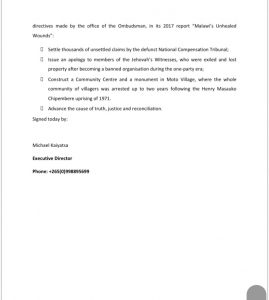
Press release
On Chakwera’s apology for MCP’s one party era human rights abuses, The Centre for Human Rights and Rehabilitation (CHRR) commends President Lazarus Chakwera for apologising to Malawians for gross human rights violations perpetrated by the Malawi Congress Party (MCP) during the one party dictatorial regime. Chakwera’s apology is an acknowledgement that serious human rights violations were committed during that era, and that his government is accepting responsibility for what happened.
However, while commending the President for the apology, CHRR is of the view that Chakwera should have gone further to tell Malawians what else will be done by his government to redress the harm that was caused as well as what is being done to keep them safe from future rights abuses by the state or its agents. The best apology, as they say, addresses the future not just the past.
CHRR also observes that an apology in itself is not enough as reparation to victims of serious violations. There is an urgent need for Chakwera to follow up his apology with material forms of reparation, such as compensation. Financial compensation, even if it is not capable of repairing fully the harms suffered, can help to show the seriousness of Chakwera’s apology and dispel
suggestions that the President is simply trying to seek an easy way out of his party’s dark past.
The wounds inflicted by the dictatorial MCP regime in Moto Village and elsewhere are so deep that they cannot be healed by word of mouth only. There is, therefore, an urgent need for the President to follow up his apology with financial compensation to victims. In the absence of compensation, Chakwera’s apology will ring hollow and will be deemed insincere and ineffective. The international standards dealing with serious violations of human rights urge states where massive human rights violations have taken place to acknowledge victims through reparations, in addition to pursuing other processes, such as criminal prosecutions, and commissions of inquiry or truth seeking. In this regard, therefore, CHRR calls upon the Chakwera administration to take other reparation measures, such as compensations, to repair the harm done to victims and their families. Without reparations, Chakwera’s apology fails to satisfy the demands of restorative justice.
The President also needs to honour his commitment to establish transitional justice mechanisms, such as the much talked about Truth and Reconciliation Commission to facilitate a national healing process. In this regard, CHRR is surprised as to why the much-touted National Peace and Commission Bill has not been brought to Parliament despite numerous promises by the Chakwera
administration that the Bill would be introduced during the current sitting of Parliament. We urge the President to expedite this Bill so that it can be tabled in Parliament without much delay. Justice delayed is justice denied.
CHRR understands from the President’s State of the Nation Address delivered to the 49th Session of Parliament on 4 September 2020 that one of the responsibilities of this Commission would be “to complete the task left unfinished by the defunct National Compensation Tribunal.” It is our hope that President Chakwera will stick to his word and turn this Tribunal into reality.
Finally, in addressing abuses of the past, CHRR urges the President to ensure that his plans are in line with the eight objectives of Transitional Justice, which include investigating past human rights abuses, identifying those responsible, imposing sanctions on those responsible (where it can), and providing reparations to victims and preventing future abuses. In this regard, we urge the President to consider instituting a commission of inquiry to establish the full extent of the violations that were committed during the one party regime. Such an inquiry would help to put to rest longstanding disputes over what happened during that dark period in our history.
We, at CHRR, fully agree with the President that Malawi needs to address the past in order to move forward. We cannot achieve meaningful development if the wounds of the past are left untreated and if no concrete measures are taken to prevent future abuses by the state and its agents. CHRR, therefore, urges the Chakwera administration to implement the following directives made by the office of the Ombudsman, in its 2017 report “Malawi’s Unhealed Wounds”:
● Settle thousands of unsettled claims by the defunct National Compensation Tribunal;
● Issue an apology to members of the Jehovah’s Witnesses, who were exiled and lost property after becoming a banned organisation during the one-party era;
● Construct a Community Centre and a monument in Moto Village, where the whole community of villagers was arrested up to two years following the Henry Masauko Chipembere uprising of 1971.
● Advance the cause of truth, justice and reconciliation.
Signed today by:
Michael Kaiyatsa
Executive Director
Phone: +265(0)998895699
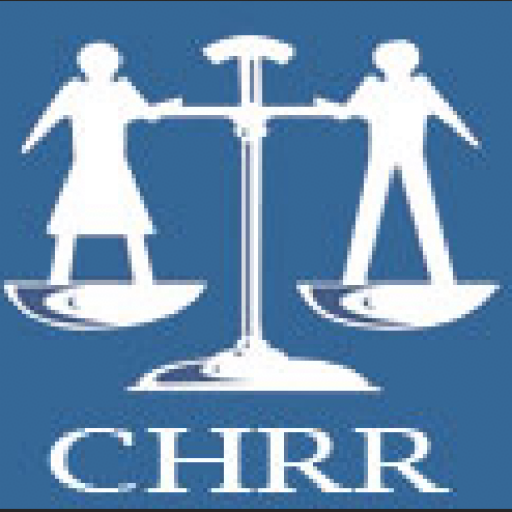
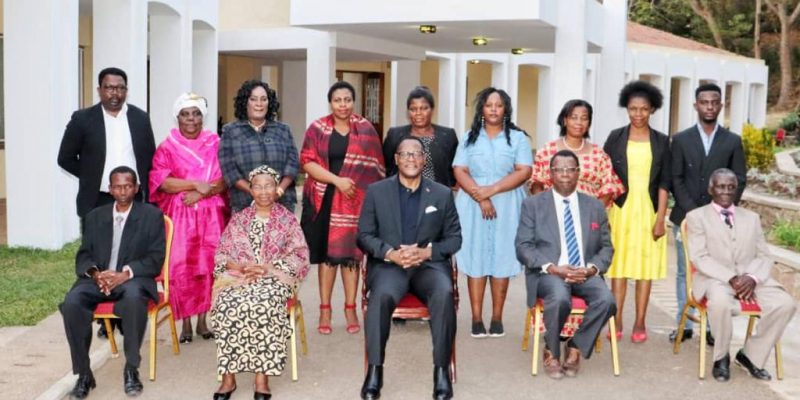
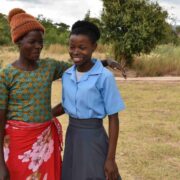
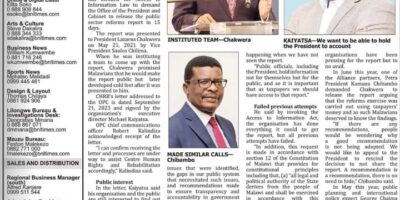
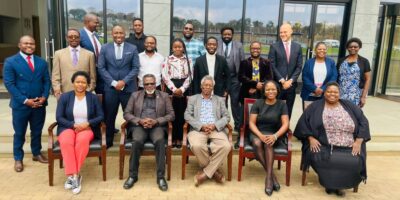
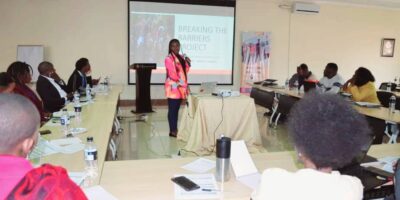
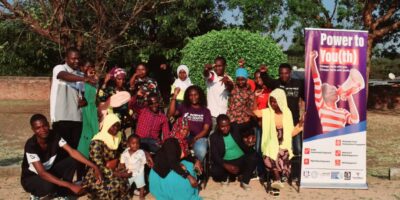

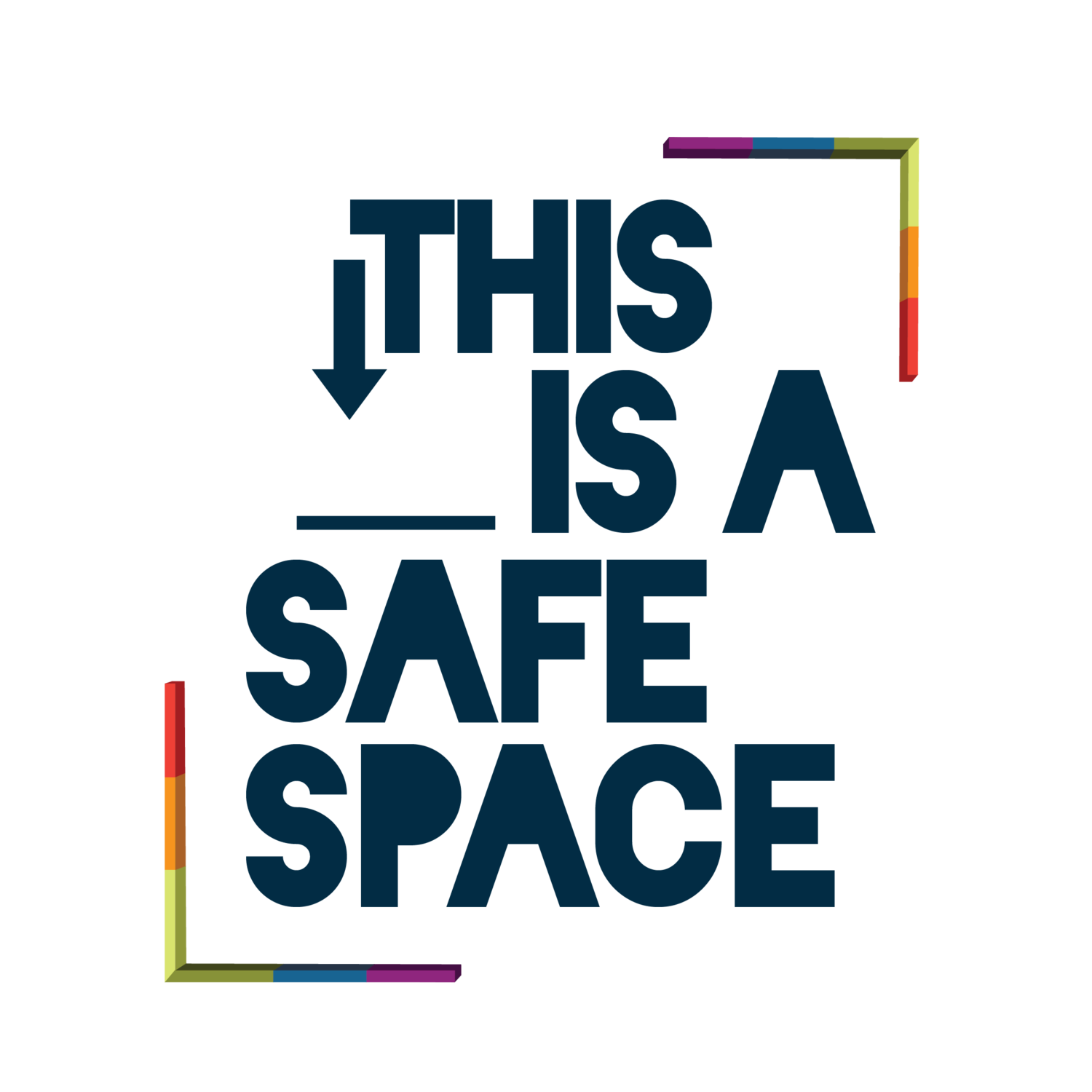
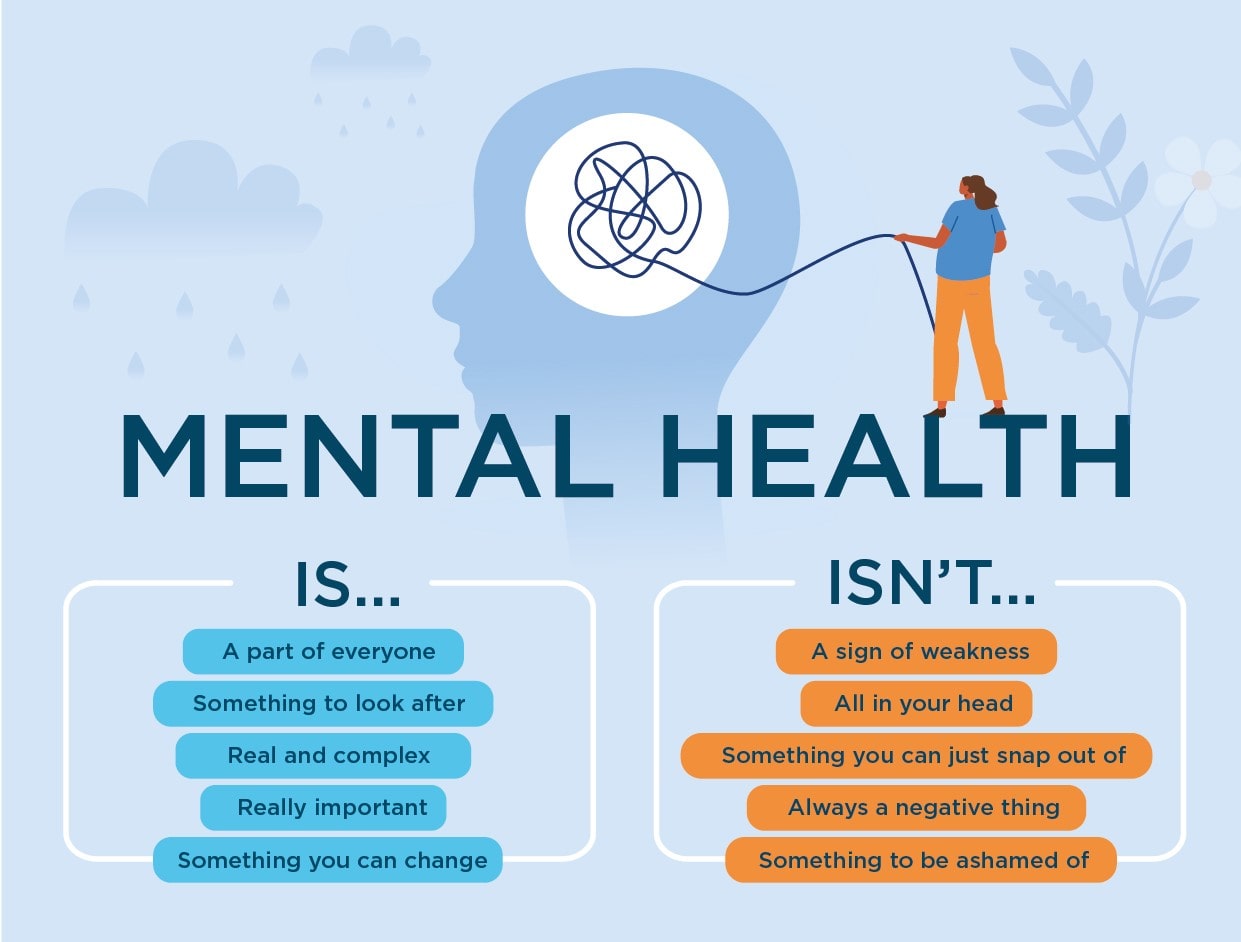
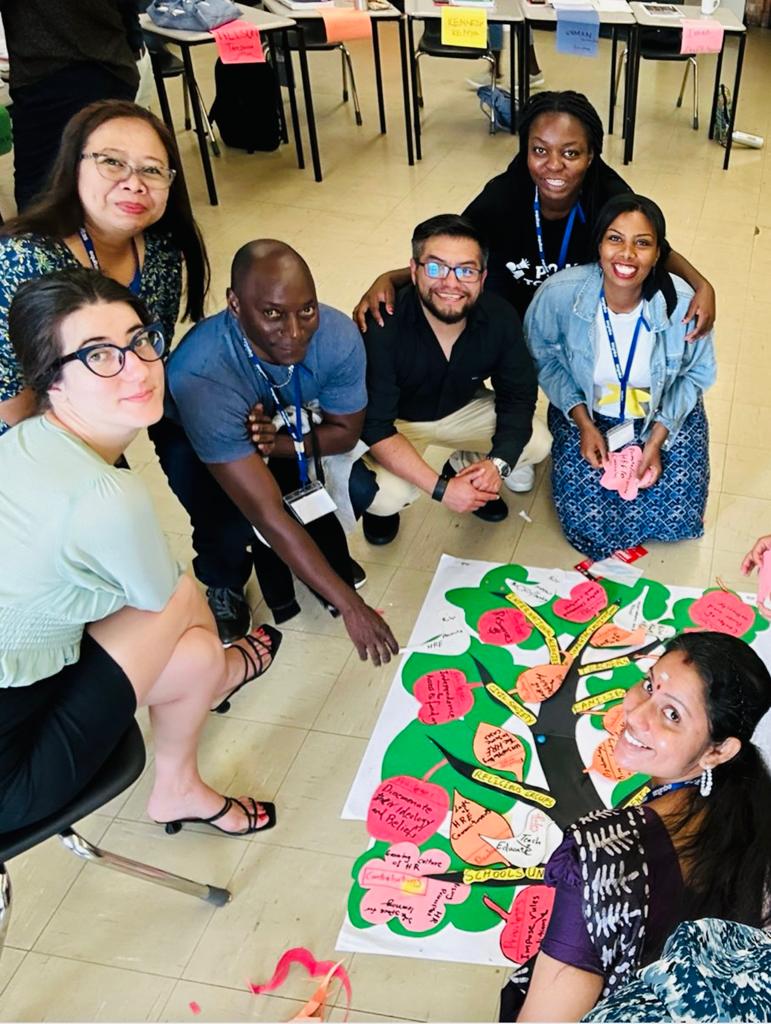
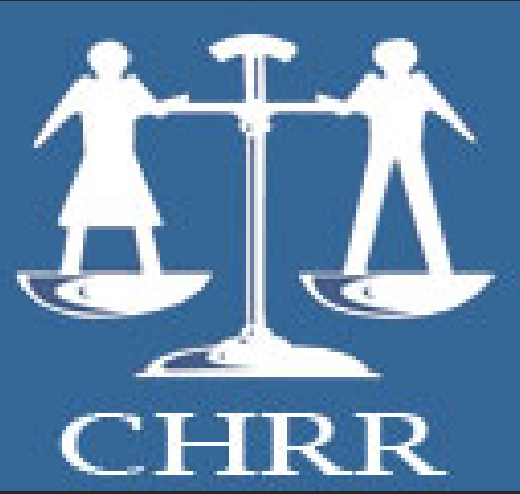


Comments